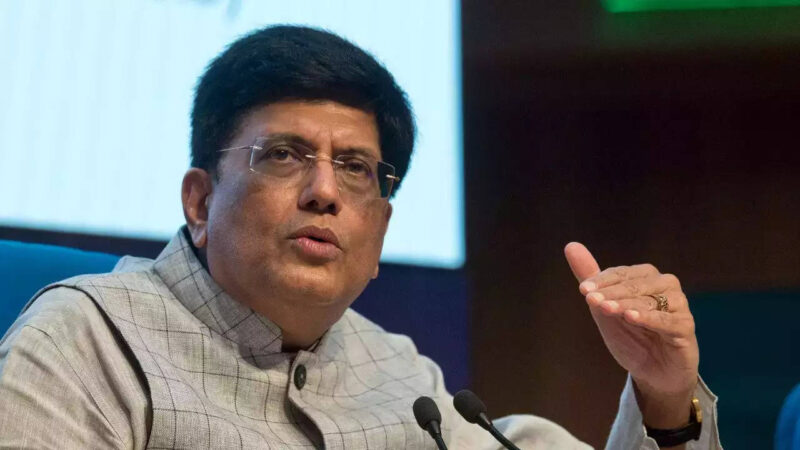India has launched negotiations for free trade agreements with UAE, England, European Union (EU), Australia, Canada and Israel. Piyush Goyah also said that India tried to get zero task export to England for the textile sector.
Trade Union and Minister of Industry Piyush Goyal said that India no longer signed a free trade agreement (FTA) only to join a group. Speaking at an event organized by the merchant and trader industry on Friday, Goyal said that India instead saw reciprocal access, good market conditions, and fair games in trade goods and services.
“We are looking at strong FTAs with the same-minded nations with the values of democracy, transparency, and reciprocal growth,” Minister said.
He added that the FTA was a two-way traffic and industry to instill a greater appetite for risk taking because this pact could not provide one-sided access to Indian goods and services.
“Our focus is wherever we have a comparative or competitive advantage, we must see market access and wherever the benefits are with several other countries, we do not have to force Indian consumers to buy expensive,” Minister said.
Goyal, who is also the Minister of Textile, said India was trying to get zero task exports to the UK for the textile sector and also discussed the same thing with the European Union.
India has launched negotiations for the pact with UAE, England, the European Union (EU), Australia, Canada, Israel and a group of countries at the Gulf Cooperation Council (GCC).
In December 2021, the Ministry of Trade had said that negotiations between India and UAE were in the advanced stage and the two partners were expected to resolve a comprehensive economic partnership agreement in January this year.
On October 12, Times Hindustan reported about the aggressive timeline of the government for trade agreements with at least three countries – UAE, England and Australia – in 2022 as part of an ambitious target of $ 500 billion exports by FY23.
Under the FTA, two trading partners significantly reduce or eliminate import duties / customs in the maximum number of goods traded between them, in addition to reducing the norms to promote trade trading.


















